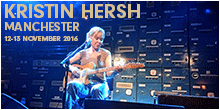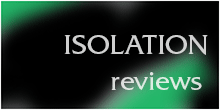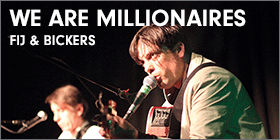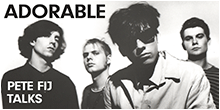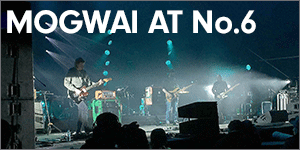

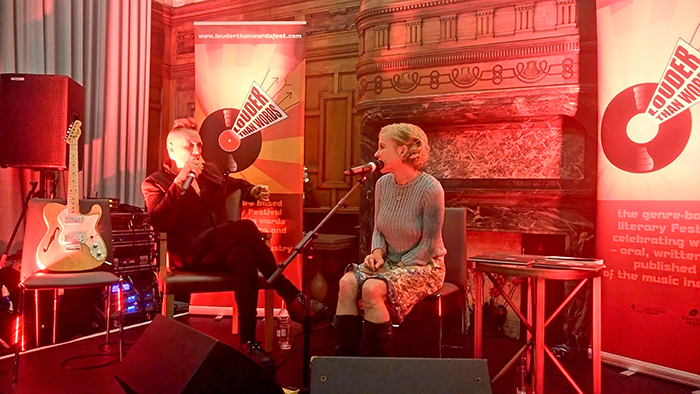
John Robb interviews Kristin Hersh, LTW Festival 2016. Pic: Adam Hammond
Louder Than Words Festival
Words: Adam Hammond
As the year begins to look its age and prematurely tinsel-strewn shops begin to play on the nerves, it would be easy to overlook the fact that one of the great music events of the year is about to take place in Manchester. For four years now the country’s only music literary festival has been held in that city over a long weekend in mid-November, introducing the best current publications and showcasing them in an impressive and innovative programme of events.
With debates, film shows, one-on-one interviews, signings and live sets, Louder Than Words annually welcomes a fine collection of authors, journalists and publishers who mix with the attendees in a warming melting pot of enthusiasm and kinship, all contributing to what is a very relaxed and friendly weekend. There are no stars here, just kindred spirits, and it doesn’t matter what genre of music you prefer or how old you are, there is something on offer that you will enjoy.
Founded by Festival Director Dr Jill Adam and journalist and musician John Robb, the quality of the festival, held in the elegant surroundings of The Principal Hotel, has been second to none, each year managing to outdo the previous one in scale and ambition. We attended the festival for the second time last year and enjoyed a varied programme that included former Spider From Mars Woody Woodmansey talking with John about his time as the drummer in the band that helped David Bowie to stardom; Kristin Hersh talking about her new album and book, Wyatt At The Coyote Palace, accompanied with a live acoustic set; regular contributor Zoë Howe discussing her first novel, Shine On Marquee Moon; former Crass founder member Penny Rimbaud debating the meaning of peace and love; a panel discussion on record sleeve notes; and a film show on the music and politics of Red Wedge and Rock Against Racism. That was just a small selection of what was on offer. The Friday evening saw an acoustic set from Brix Smith, metal band Thunder played on Saturday night, and Wolfgang Flür of Kraftwerk described the electronic music of Düsseldorf on Sunday. And there was much, much more...
This year, the festival, running from Friday 10th to Sunday 12th November, is offering another terrific programme. Punk icon Jordan will be in conversation with John Robb; former Public Image bassist Jah Wobble will be enhancing his fine reputation as a raconteur; bassist Horace Panter will be talking about his years with The Specials; Zoë Howe will be discussing the new book and documentary about the life of Poly Styrene, along with Poly’s daughter, Celeste Bell; Rat Scabies will be discussing his experiences from a decade of chaos with The Damned; Mickey Bradley will be telling tales of life with the Undertones; and Miles Hunt will delve into his past with The Wonder Stuff. All this and a hell of a lot more ... check out the festival website for the full programme and the chance to grab a ticket you will never regret buying ... www.louderthanwordsfest.com
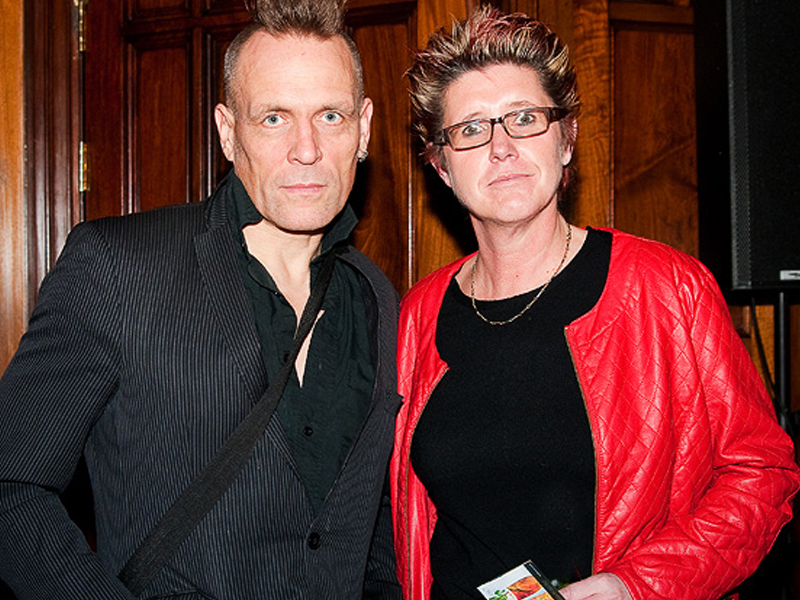
John Robb and Jill Adam. Pic: www.louderthanwordsfest.com
As we enjoyed last year’s programme Jill spared us the time to talk about her festival experiences.
Jill, how did the festival come into being?
My husband Phil would say that I’ve got an unhealthy obsession – whereas I would describe it as a healthy passion – for both music and literature, or particularly words about music so people who are in conversation, people who are writing biographies, or biographies of people, that’s my thing. I’d watched the rise of literary festivals and I was intrigued that you could go to a literary tent at a music festival or a music tent at a literary festival but I couldn’t see anything that was solely dedicated to the things that like-minded people are obsessed about. So I said to John Robb I think if we did this together we could make a go of it. He had a hundred and one ideas to complement that and the rest is history. It works really well. This is our fourth festival now and it’s flourishing which is fantastic. We’ve got great support from publishers, great support from magazines and poets, Omnibus Press came on board as a sponsor and they’ve just signed up for another three years which is fantastic.
How important is the sponsorship to you?
Sponsorship is really important. One of the things we worked really hard on is getting people into great venue spaces; and that’s different to a gig space. So The Palace, or the Principal as it’s known now, is a great venue because we’ve got really acoustically good rooms for listening to those in-conversations but also for acoustic sets. It’s exciting stuff.
As John is the busiest man in the world, how are the responsibilities delineated?
It works really well for us. I do all the background work, making it happen, structuring the programme, getting in touch and maintaining relationships with the publishers and then John is the face of the festival, hosting the in-conversations. I don’t think there’s one artist or contributor we could get to the festival that John doesn’t know something about. And that works really well, so we complement each other in the way that Louder Than Words has been able to grow.
Who picks who comes to the festival?
We’re lucky, because as it’s grown, we now have publishers writing to us and saying, “We’ve got this book coming out, would you be interested in having this author?” We work obviously very closely with Omnibus Press. We’ve got really good relationships with a number of organisations. The biggest challenge we have is that we could run this festival for a week, so how do you decide who is going to come? It’s really a matter of booking what is going to be out there in November, booking what complements each other in the programme and also what is opposite, really opposite in the programme because we have parallel sessions running so you want to be able to give people choice but not prevent them from seeing things they want to see. It works out having extremes on at the same time. We try and maintain a balance between alternative culture and mainstream culture. We try and balance the one-on-one conversations with things that have images or films to support them, panel discussions and acoustic sets.
How important is performance to the festival?
We’re not about gigs; we are about literary and word and spoken word and talking, that’s what we’re about. But everybody who comes to Louder Than Words is a music buff. It would be very odd not to have any music in it. If you think about this time, we’ve had an acoustic set from Brix Smith, Kristin Hersh which was spectacular, Thunder ... just fantastic. That’s three very different artists, three very different audiences, but it’s worked really well and that music has interspersed the weekend and it just keeps the rhythm going for us as well.
Are there plans to expand it, or are you going to keep the same format?
Ooh, good question. We will always have our Manchester festival. We have got no plans not to do our annual festival and it will always be a weekender. It works well for us. We’ve managed to grow it. The venue space we have means that if we wanted to take on more rooms we could. But actually we’ve got a good formula at the moment and it’s about strengthening that and continuing to grow the quality in that, but now we are thinking of doing a number of satellite events around the country. Fourteen months ago we signed a partnership with the Royal Albert Hall in London, we’ve done a few events there, and we’ve got plans in the pot of doing events on the other side of the Pennines, so yes there is growth and expansion but not a dilution of what we are doing in Manchester.
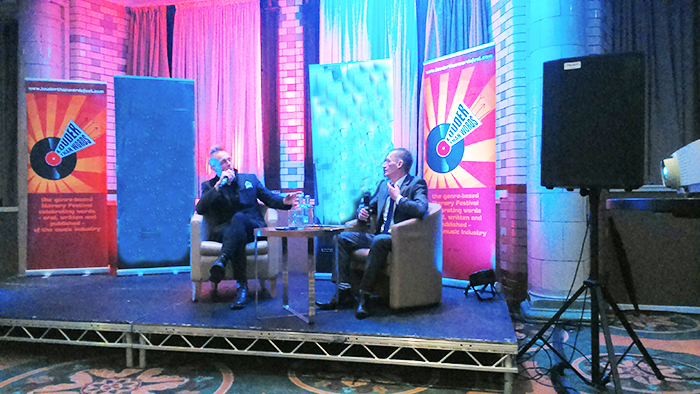
John Robb interviews Keith Levene, LTW Festival 2015. Pic: Adam Hammond
What were the highlights for you over the four years?
In the first year the highlight for me would be Hugh Cornwell who came and just talked about himself as a writer. He’d written a crime novel and it was a very different take on Hugh Cornwell. It wasn’t talking about life in The Stranglers, but he then did do a surprise acoustic set for us which was really special. Zoë Howe is always a highlight for us, an absolutely beautiful writer. This is her first time with a fiction novel and it’s great. Penny Rimbaud is a highlight this weekend. We had a panel discussion two years ago which included Guy Garvey of Elbow. That was about Manchester-based lyrics and that was fascinating. And then the Poetry Slam where we get young people involved and we get a poet in residence out of that. We have a Wilko Writing Award. Gosh! I could talk forever on this. A highlight is the sort of thing where you wake up at three in the morning and think, “Blimey, that was great.” I remember Don Powell of Slade came and his session was both hilarious, fascinating and really informative. This year Woody Woodmansey is a great capture. What a great speaker with wonderful stories to tell. I think what is great about Woody is that he’s obviously got interesting stories about Bowie, but actually his life as the drummer is just as intriguing and good to listen to. One of the things we said at the beginning when we first thought about putting LTW together was that in this age when you can google anything you like what we felt was really important is that you go into a room – it doesn’t matter if it’s a conversation or a panel – and you hear something directly from the people involved that you didn’t know before you came into the room, not something you could just google. So, we like the idea that people come in, learn something or hear something that’s absolutely fresh to their ears, and it’s not just some repeated fact.
Is it important to get a good balance between male and female contributors?
Yes it is, and sadly it’s not easy. But we do work hard in trying to make sure we’ve got that balance both between male and female as well as getting the balance across different genres of music. It’s also about getting the balance between what’s included in a session or who else may be on a panel and some things that are pertinent, some things that are historical... We work hard on ensuring good representation from different genres, male female – it’s a challenge but we work hard at it. And also agewise ... it’s been really important for us that the Wilko Writing Award is for aspiring writers under twenty-five, the Poetry Slam tends to be young people between thirteen through to thirty. It’s really important to get that next generation of people involved.
Since we’ve started audience members have almost doubled. This year in particular has been really strong and we like to think it’s a reward for putting on a festival that is well run, but also the quality and calibre of the people we have got involved. I think the other thing that we do well is that we deliberately don’t have a green room. We like the idea of continuing the conversation. We’re sat in the bar now and if you look behind you there are audience members chatting with contributors. It doesn’t matter to us if you are Don Powell or Hugh Cornwell or Viv Albertine or a second year student doing Music Journalism. To us, it’s just about like-minded people getting together for the weekend and that’s the vibe we push hard to get.
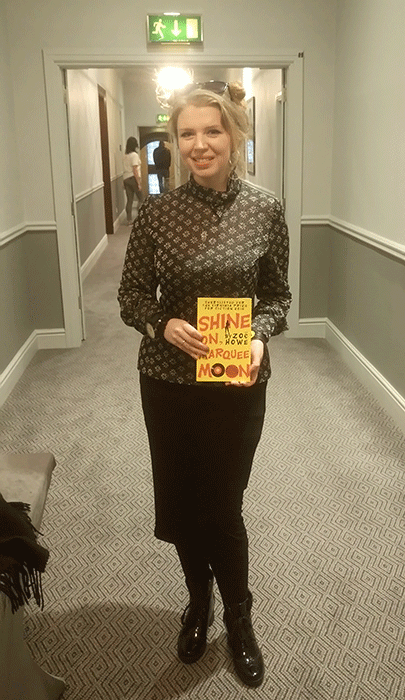
Zoë Howe with her novel Shine On Marquee Moon, LTW Festival 2016. Pic: Adam Hammond
One of the regular attendees of the festival is author Zoë Howe. She was at the 2016 event to promote her first novel, Shine On Marquee Moon, a delightful tale of a New Romantic band lost in the nostalgia circuit. Zoë’s previous books have included important biographies of The Slits and The Jesus & Mary Chain, writing about these hugely influential bands at a time when interest in alternative culture was at an all-time low, and as such she played an important part in helping shape the recent renaissance in independent music. Zoë was happy to give her thoughts on what makes the LTW festival so important.
“It’s a one of a kind, really, being a music book festival so that’s special, but I think there is something unique about it in the sense of its dynamics and the way it has evolved and changed but always kept at the core this feeling of positive energy. It’s always such a pleasure to be here. It’s like a family reunion for lots of music writers. It’s very friendly and open, it’s very warm and that comes not just from the people who are on the bill and the people who attend, but it comes very much from the festival team, particularly Jill and John who are two of the most dynamic people I know – two of the most positive people I know – and that is infectious. Everybody who comes back year after year feels this is their favourite weekend of the year and I think that speaks volumes. From my point of view as a music writer it is a chance to connect with my contemporaries, meet my heroes and meet the next generation of music writers. But it is also a chance to connect to readers as well which is hugely important and a special opportunity that we don’t always get. When you are writing you spend a lot of time on your own. It doesn’t feel like a contrived promotional thing, there’s nothing dry about it, it’s just fizzing with warmth and I like the fact it is always in Manchester and not in that London. I think that’s significant.
"It’s definitely important to have female writers here. Music journalism is still seen as predominantly a male profession. When I started writing I didn’t particularly think there was a female writer I was looking up to, I just wanted to do it. But I do know that it is important to have inspirational figures that people can look to, to give them strength, as it can be an intimidating world. The same as the music industry across the board: it’s intimidating. I think it has always been important to John and Jill to be diverse and I think they have achieved that very well. I think they have taken pride in that and it makes it more interesting for everybody else. It’s not just the same old faces talking to each other and patting each other on the back; they really work hard at reaching out beyond the usual parameters so you will get the icons of music journalism, but you also have the future of music journalism and everything in between.”
Zoë beautifully sums up the warmth of the experience you will enjoy at Louder Than Words. You will undoubtedly find something in the programme you will enjoy and you can either embrace the whole event with a weekend pass, or pick up individual tickets to meet your particular desires. Either way, give this event a go and you will probably find yourself returning again and again. Louder Than Words is unique, worthwhile and precious. Which in this day and age is something to be treasured.

